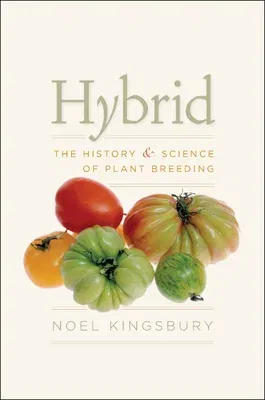Disheartened by the shrink-wrapped, Styrofoam-packed state of
contemporary supermarket fruits and vegetables, many shoppers hark back
to a more innocent time, to visions of succulent red tomatoes plucked
straight from the vine, gleaming orange carrots pulled from loamy brown
soil, swirling heads of green lettuce basking in the sun.
With Hybrid, Noel Kingsbury reveals that even those imaginary perfect
foods are themselves far from anything that could properly be called
natural; rather, they represent the end of a millennia-long history of
selective breeding and hybridization. Starting his story at the birth of
agriculture, Kingsbury traces the history of human attempts to make
plants more reliable, productive, and nutritious--a story that owes as
much to accident and error as to innovation and experiment. Drawing on
historical and scientific accounts, as well as a rich trove of
anecdotes, Kingsbury shows how scientists, amateur breeders, and
countless anonymous farmers and gardeners slowly caused the evolutionary
pressures of nature to be supplanted by those of human needs--and thus
led us from sparse wild grasses to succulent corn cobs, and from mealy,
white wild carrots to the juicy vegetables we enjoy today. At the same
time, Kingsbury reminds us that contemporary controversies over the
Green Revolution and genetically modified crops are not new; plant
breeding has always had a political dimension.
A powerful reminder of the complicated and ever-evolving relationship
between humans and the natural world, Hybrid will give readers a
thoughtful new perspective on--and a renewed appreciation of--the cereal
crops, vegetables, fruits, and flowers that are central to our way of
life.

